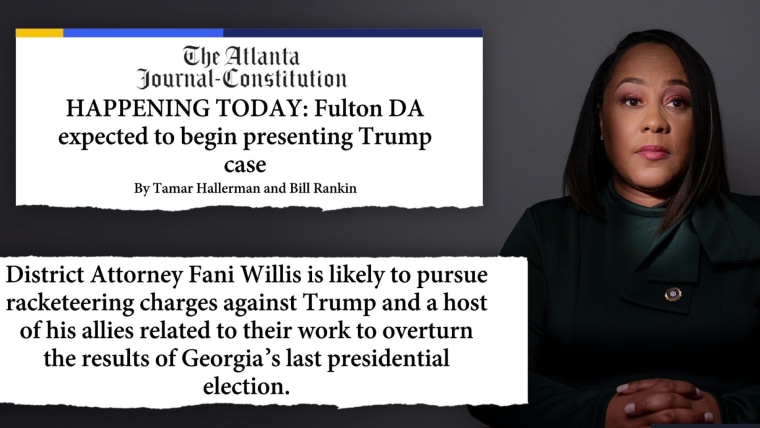It’s not exactly a secret that Donald Trump is feeling some anxiety about his likely criminal indictment in Georgia. The former president’s online hysterics directed at Fulton County District Attorney Fani Willis, for example, reflect an apparent sense of panic.
Just hours after trying to smear the local prosecutor, Trump used his social media platform to ask “someone” to tell the Atlanta-area grand jury that he didn’t “tamper with” the 2020 election — just in case they happen to have seen evidence to the contrary.
Minutes later, he published a related message:
“I am reading reports that failed former Lt. Governor of Georgia, Jeff Duncan, will be testifying before the Fulton County Grand Jury. He shouldn’t. I barely know him but he was, right from the beginning of this Witch Hunt, a nasty disaster for those looking into the Election Fraud that took place in Georgia. He refused having a Special Session to find out what went on, became very unpopular with Republicans (I refused to endorse him!), and fought the TRUTH all the way. A loser, he went to FNCNN!”
The former Georgia lieutenant governor might not be well known outside his home state, but Geoff (not Jeff) Duncan has taken on work of national significance. The Republican rejected post-election efforts to select a pro-Trump separate slate of presidential electors; Duncan was deeply critical of his party’s voter-suppression measures; he’s called on his party to abandon election conspiracy theories and “misinformation”; and he’s partnered with a “GOP 2.0” group that hopes to “change the trajectory of the Republican Party” away from its radical course.
Given his role in state government, it stands to reason that Duncan might be called as a witness in Trump’s trial. It’s against this backdrop that Trump published a public message, not only condemning the former lieutenant governor, but urging him not to testify.
I’m not an attorney, so I’m not in a position to declare with confidence whether this crosses any legal lines. That said, it’s hardly a stretch to wonder whether Trump’s missive constitutes possible witness tampering — an issue that he’s struggled with before. A Washington Post report last week highlighted a series of incidents from the recent past:
In 2019, Trump tweeted an attack on former ambassador to Ukraine Marie Yovanovitch during her testimony to the House Intelligence Committee, which Yovanovitch called “very intimidating.” Even some Republicans were clearly uncomfortable with what Trump had done. Possible witness tampering also figured heavily into the Russia investigation. Special counsel Robert S. Mueller III’s report noted at least five instances in which he suggested Trump’s actions might have met the threshold for charging obstruction of justice — including interactions with witnesses.
But as striking as this context is, it’s also worth emphasizing that the former president isn’t doing his defenders any favors.
As New York magazine’s Jon Chait summarized this morning, “What can certainly be ascertained, without any legal training, is that this is not the behavior of an innocent man.”
After Trump’s indictment in Georgia, state law will require a judge to agree that the criminal defendant “poses no significant risk of intimidating witnesses.” Watch this space.

